SUMMARY
This is AI generated summarization, which may have errors. For context, always refer to the full article.
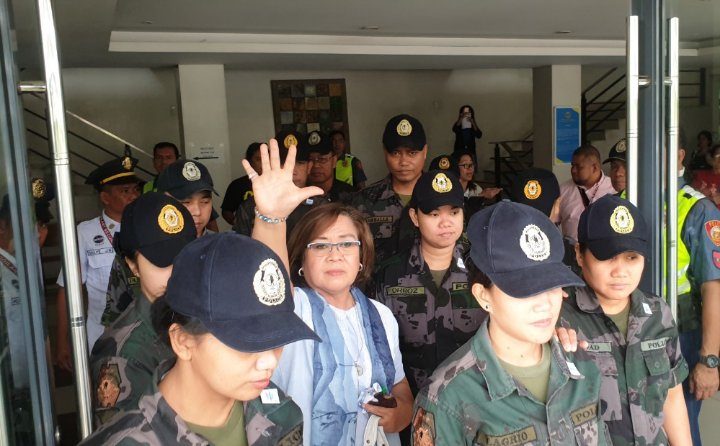
The Department of Justice (DOJ) on Friday, December 4, formally filed a contempt suit against detained opposition senator Leila de Lima and her lawyer Boni Tacardon for allegedly violating the sub judice rule.
The sub judice rule would have lawyers avoid discussing the merits of the case to the media, limiting access to a trial watched by the world, and a trial which has prompted the United States to mull a travel ban against De Lima’s accusers.
“The media disclosure by respondents Atty Tacardon and Senator De Lima of misinformation is therefore considered an affront to the lawful proceedings of the Honorable Court, in their obvious desire to attack or insult the dignity and independence of the Court,” the DOJ said in its 39-page petition filed before the Muntinlupa Regional Trial Court (RTC) on Friday.
The contempt suit is rooted in Tacardon’s media releases from September to November, relaying testimonies made during the trial. The media had been relying on the updates since courts restricted trial access to non-parties as part of quarantine rules when the pandemic hit the country.
Reporters have had to rely on the counsels’ versions of events at the trials. Tacardon had claimed that Anti-Money Laundering Council (AMLC) financial investigator Artemio Baculi Jr testified that De Lima was not involved in any suspicious transactions that would link her to the drug trade.
Tacardon also announced on November 6 that drug convict Vicente Sy testified that he never handed money to De Lima, contrary to his earlier testimony that he gave P500,000 to the senator for her 2016 campaign.
These were all “not true,” according to the DOJ.
“It is not true that prosecution witnesses ‘reaffirmed’ that the accused was not involved in any suspicious transaction that would link accused De Lima to the illegal drug trade inside the New Bilibid Prison. It is also NOT TRUE that the said witnesses found no suspicious transactions between the senator and drug convicts,” said the petition for contempt.
But when reporters ask for DOJ’s version of the testimonies, the agency invoked sub judice.
On Friday morning, a message without any attribution reached reporters, claiming that the judge had reprimanded De Lima’s lawyers for “twisting facts and inaccurate claims.”
Asked to confirm this, the De Lima legal team said: “Nothing of that sort happened this morning. This is ‘fake news.'”
The prosecution has wrapped up its presentation in two of De Lima’s three drug charges, and those testimonies as relayed by Tacardon have been the most interesting as the first years of trial were marked by postponements and routine witnesses.
The prosecution grappled with locating a witness, Sally Serrano, but when asked about the significance of her testimony, lead Prosecutor Ramoncito Ocampo said he could not say.
“That will contradict the content of the petition, because as far as we are concerned, we don’t like to dwell on the merits, we leave it to the court,” Ocampo told reporters on Friday.
Senior Assistant City Prosecutor Darwin Cañete said the idea to file a contempt suit came to him when his friend, Mark Lopez, brought Tacardon’s statements to his attention.
Lopez is a pro-Duterte blogger while Cañete gained notoriety for posting on Facebook that “yellows,” alluding to the opposition Liberal Party, must be “killed like cockroaches.” Cañete only joined the De Lima prosecution panel in June 2018.
Journalists’ role
At the beginning of trial, Muntinlupa judges handling the cases at the time did not allow reporters inside the courtroom during hearings.
Acting on journalists’ request, the Supreme Court in 2018 allowed media to cover De Lima’s trial, allowing journalists to have first hand information of the proceedings, until the pandemic hit.
On October 9, the Supreme Court allowed a mechanism where anyone to wants access to the virtual hearings would have to send a request to the judge 3 days in advance.
But it’s not a rule set in stone, as the Supreme Court said “the court shall have the discretion to refuse access if it finds that the information given is erroneous or fictitious.”
The court has given De Lima’s lawyers and prosecutors a verbal warning not to discuss the case with the media.
And in DOJ’s bid to hold De Lima and Tacardon in indirect contempt, the prosecutors have proposed calling in reporters as witnesses, even though the articles named Tacardon as source of information and De Lima has publicly acknowledged that those statements were made under her authority.
In a letter sent by the DOJ to newspapers in November, the prosecution team offered to meet with reporters and “discuss salient points and material data.”
Veteran journalist Vergel Santos, a board member of the Center for Media Freedom of Responsibility, said that sub judice “is a serious hazard to the freedoms that form the bedrock of our democracy – freedom of expression and freedom of the press.”
“I’ve always thought it all in keeping with the philosophy of democracy that anything and everything is open to public discussion and scrutiny or, if you like, prejudgment,” Santos said in an opinion piece he wrote for Rappler.
“And for good reason, too: the wider the discussion of an issue, the finer its distillation. At any rate, if any confusion is caused, a judge with the proper constitutional mandate shall resolve it in the end,” added Santos.
Witnesses so far
The prosecution has presented convicts Vicente Sy, Engelbert Durano, and Nonilo Arile. Jaybee Sebastian, the star witness during the public congressional hearings, and who claimed he gave drug money to De Lima, died of COVID-19 in July.
Prior to his death, Sebastian pleaded guilty to one of the 3 charges where he was co-accused.
Ocampo said that while Sebastian was isolated at the New Bilibid Prison for COVID-19, the convict executed an affidavit. The public attorney who assisted Sebastian in the affidavit had been presented to the court.
Asked why Sebastian’s affidavit was only executed in July 2020 when they had almost 4 years to do so, Ocampo said they had more important witnesses to mind like former Bureau of Corrections (BuCor) acting chief Rafael Ragos, and former Criminal Investigation and Detection Group (CIDG) chief Benjamin Magalong.
In his testimony, Magalong said that during his time at the CIDG. he has never received any intel that De Lima was involved in the drug trade. It was Ragos, Magalong said, who was reported to them as being “involved in extorting and receiving payola from high profile inmates.”
Ragos was originally De Lima’s co-accused, but the DOJ dropped him from the case to turn him into a witness against the senator. – Rappler.com
Add a comment
How does this make you feel?
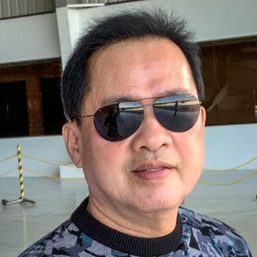
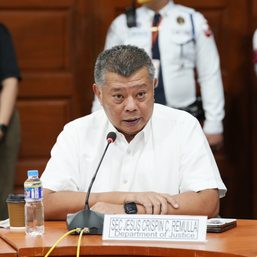
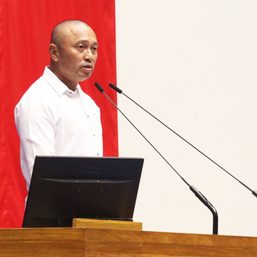
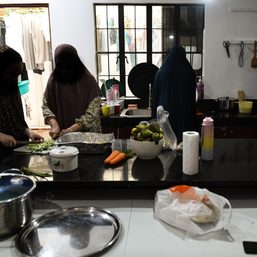
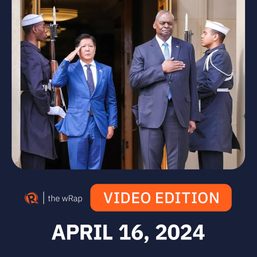
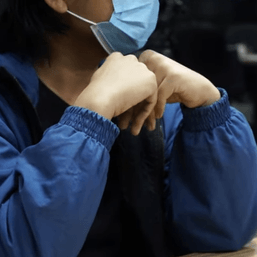
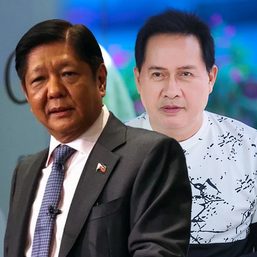



There are no comments yet. Add your comment to start the conversation.